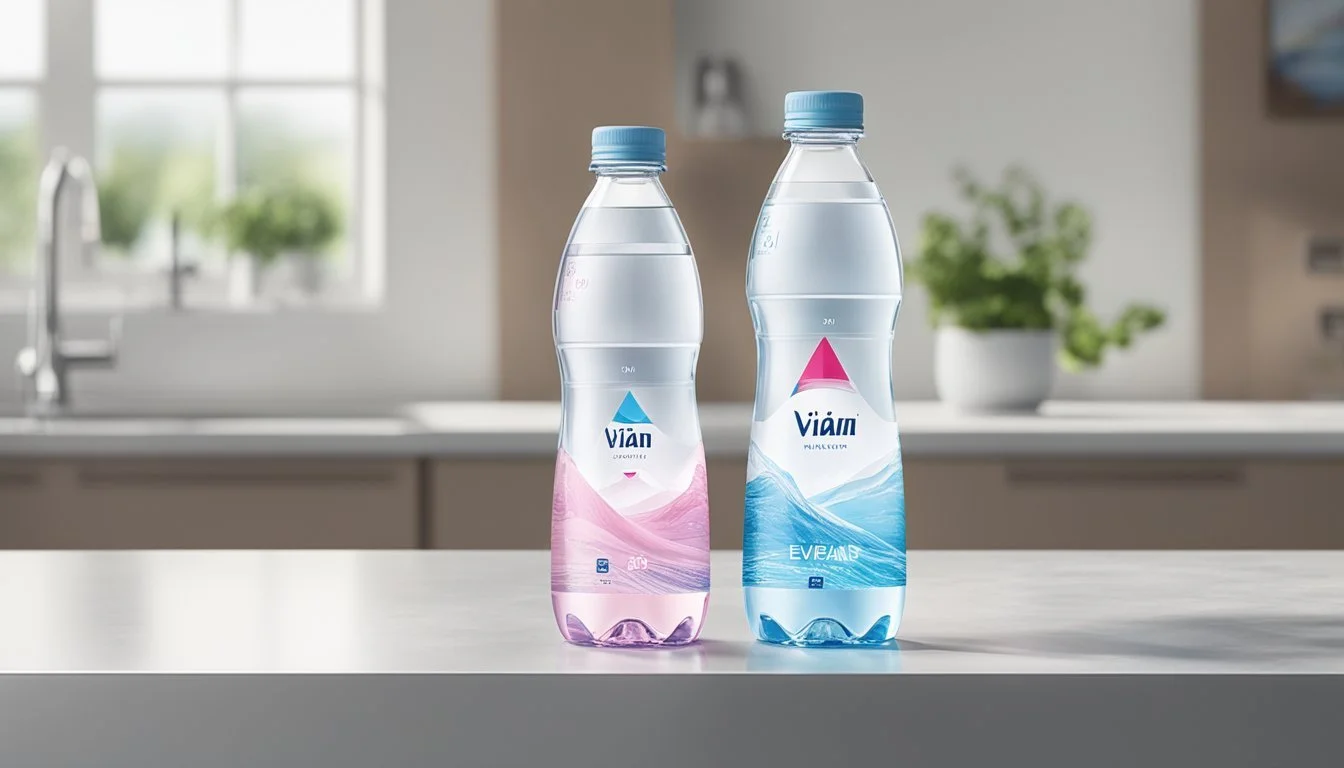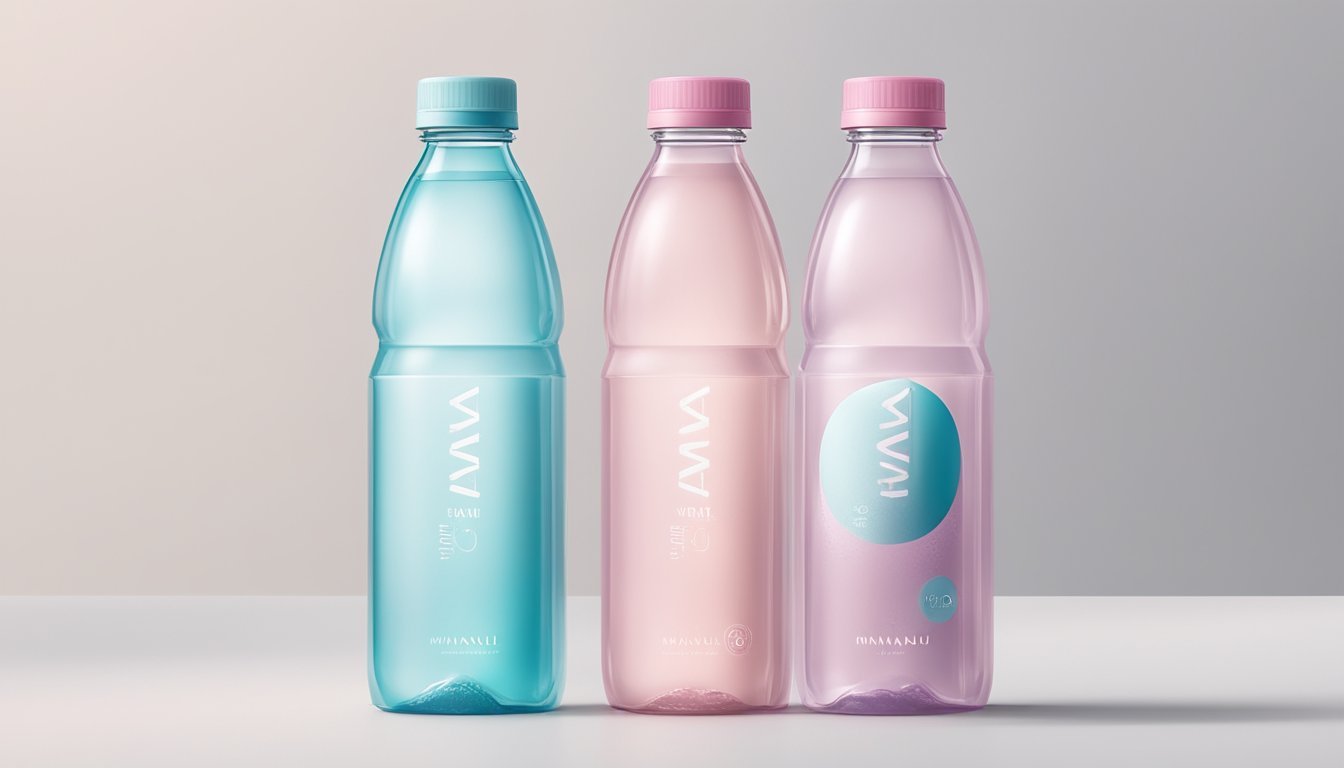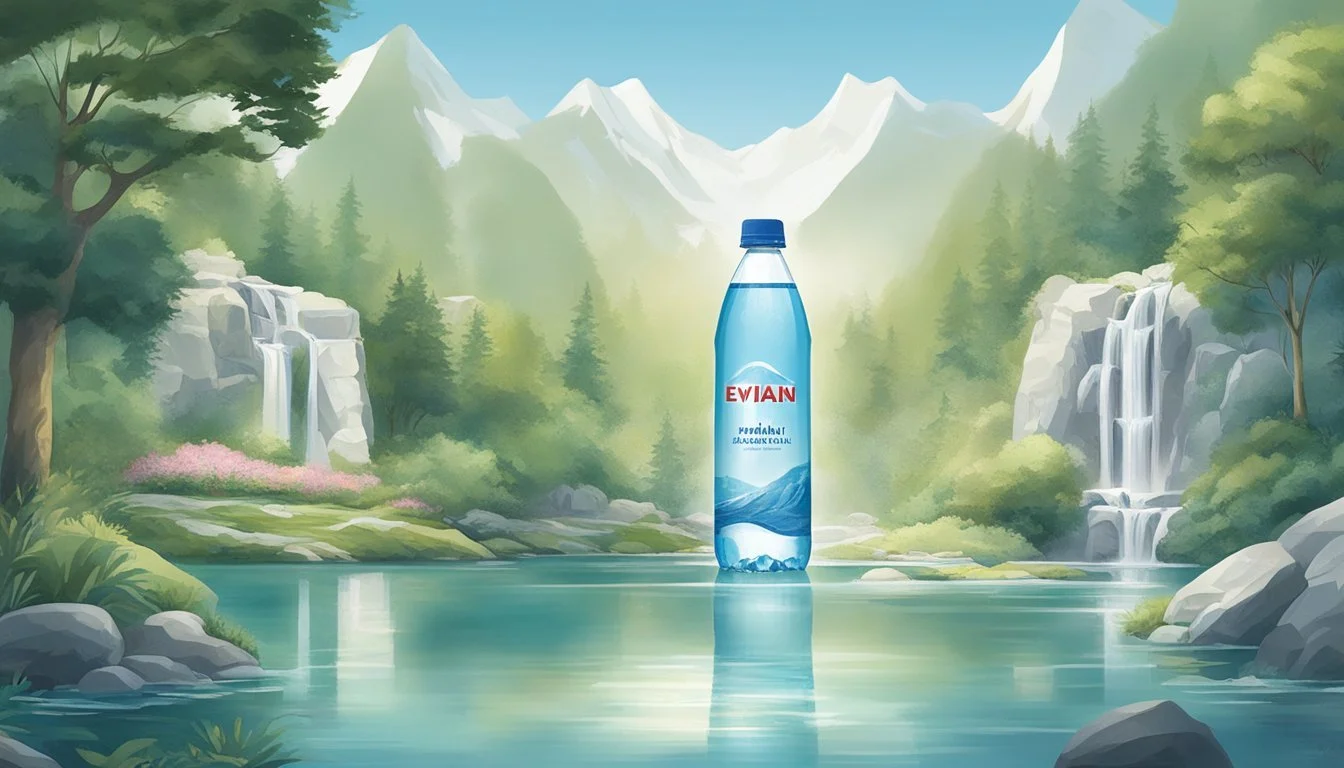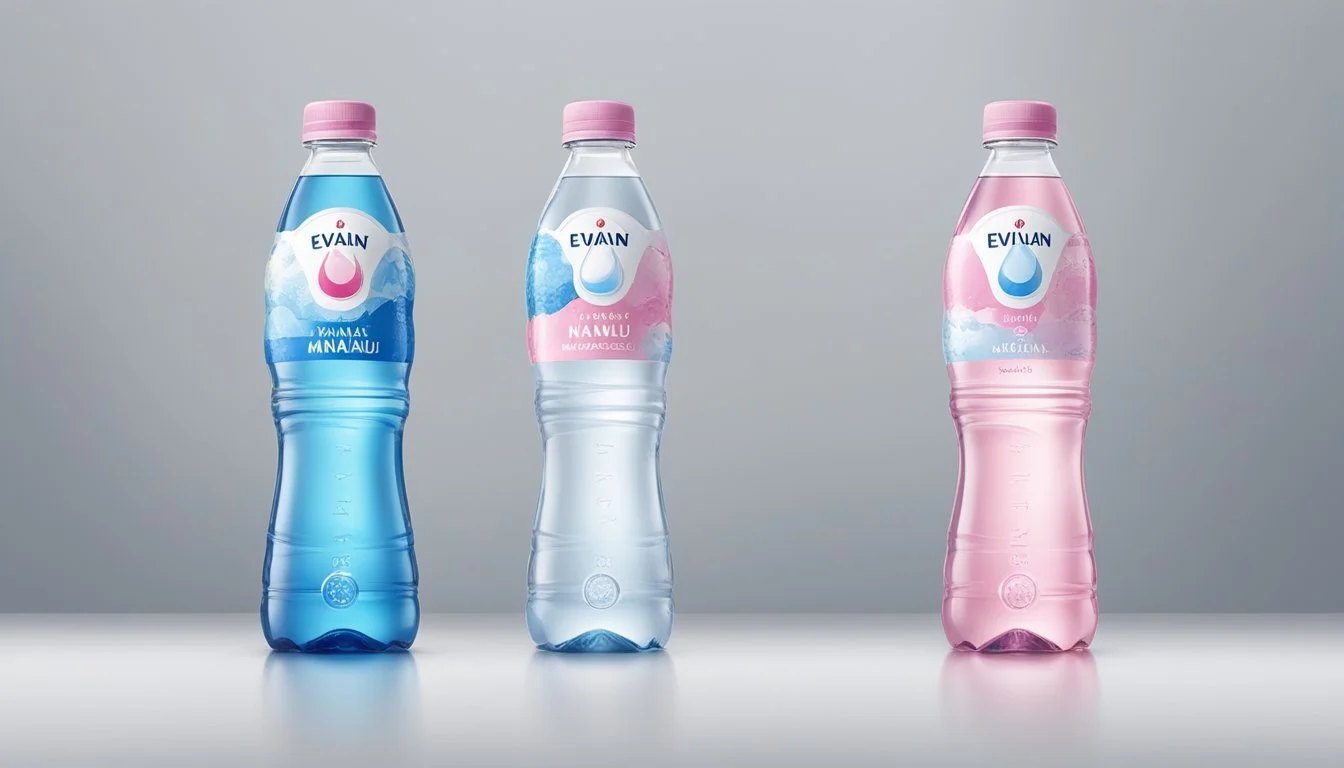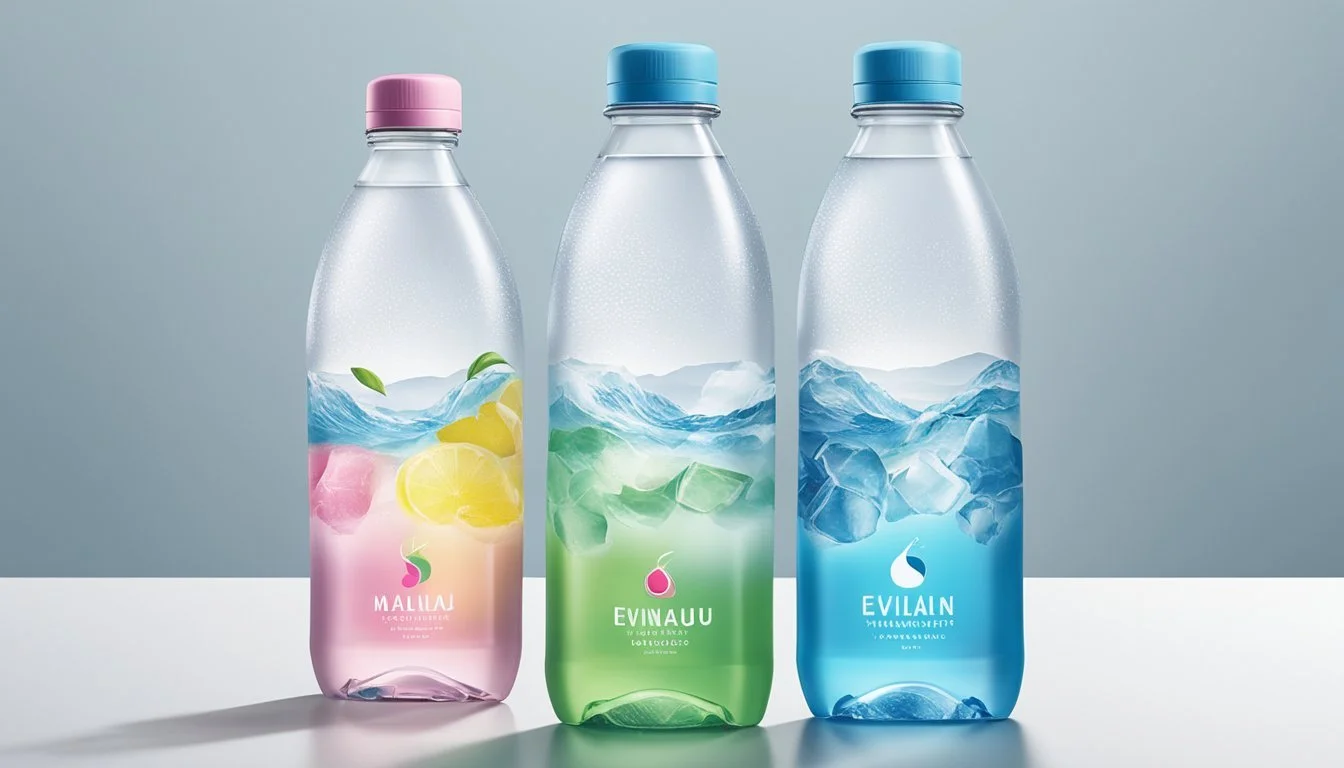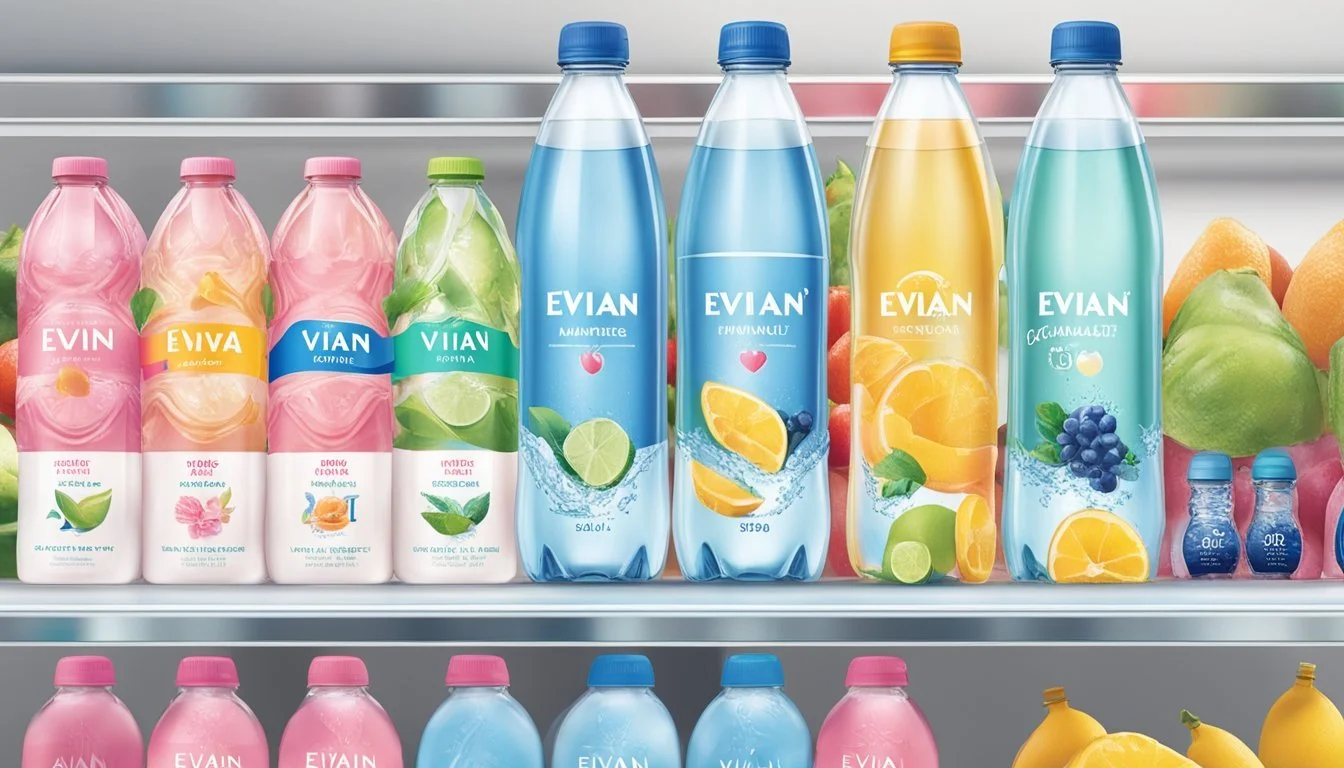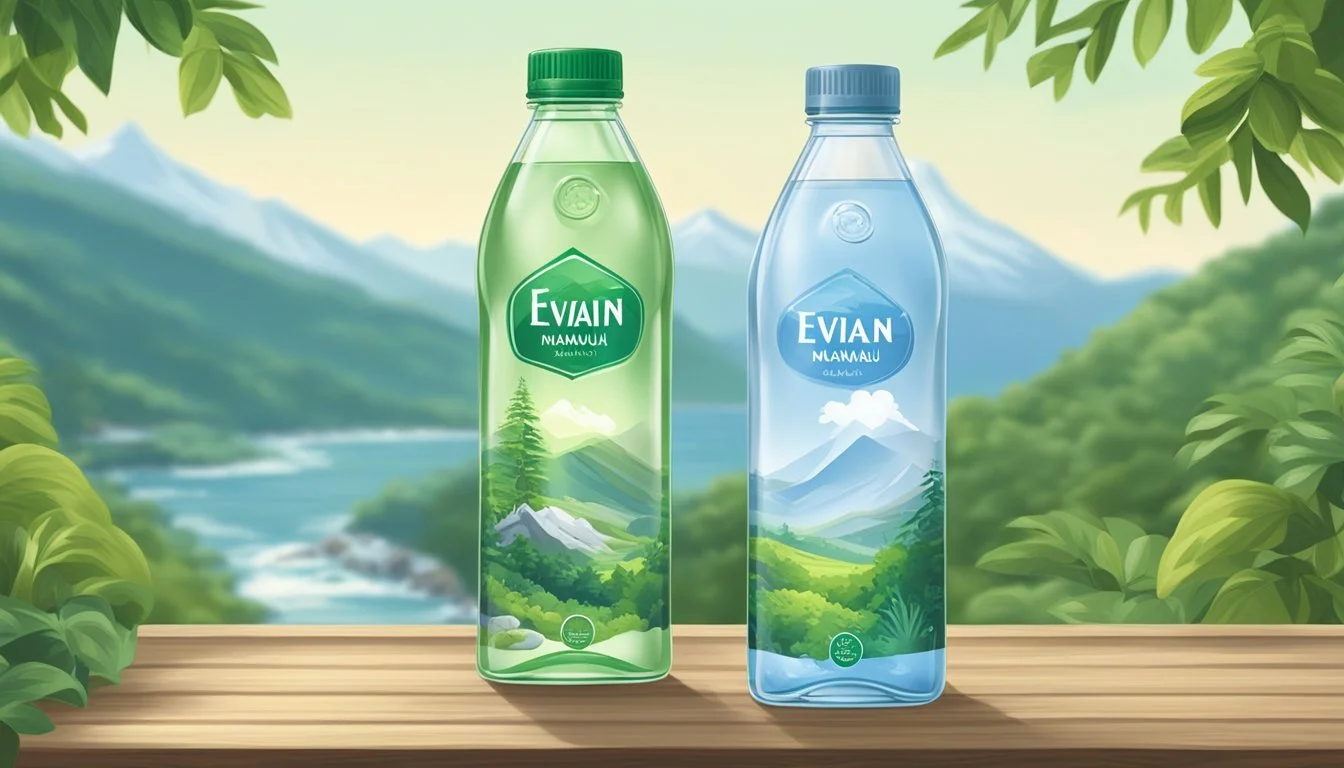Evian vs. Mananalu
Which Bottled Water is Better for You?
When it comes to choosing the best bottled water, many consumers find themselves comparing popular brands like Evian and Mananalu. Evian, sourced from the French Alps, is known for its naturally occurring minerals and crisp taste. It has built a reputation for purity and a premium drinking experience.
Mananalu, on the other hand, brings an innovative twist to the traditional bottled water market. Founded by actor Jason Momoa, Mananalu aims to reduce plastic waste by offering purified water in 100 percent recyclable aluminum cans. This mission-driven approach appeals to eco-conscious consumers looking to make more sustainable choices.
For those seeking not just hydration but also an environmental impact, Mananalu stands out as a more sustainable option compared to Evian.
The Essentials of Bottled Water
Bottled water varies based on a few essential qualities such as pH levels, electrolytes, and mineral contents. These factors significantly impact hydration and health.
Understanding pH Levels
pH levels indicate the acidity or alkalinity of the water. The pH scale ranges from 0 to 14, with 7 being neutral. Bottled water brands like Evian and Mananalu often provide this information on their labels.
Water with a pH lower than 7 is acidic, while water with a pH above 7 is alkaline. The pH level can influence the taste and potential health benefits. For example, many people seek alkaline water for its purported health benefits, including better hydration and potential antioxidant effects.
Significance of Electrolytes
Electrolytes such as sodium, potassium, and magnesium play a critical role in maintaining bodily functions. They help regulate nerve and muscle function, hydrate the body, balance blood acidity, and more.
Bottled water can vary significantly in its electrolyte content. Evian water, for instance, naturally contains essential electrolytes due to its mineral-rich source in the French Alps. These electrolytes can be particularly useful for rehydration after exercise or during hot weather when the body loses these vital minerals through sweat.
Mineral Content Analysis
Minerals in bottled water include calcium, magnesium, and bicarbonates, among others. These minerals contribute to the water's taste and potential health benefits.
For example, Evian water boasts a unique mineral composition that many find refreshing and beneficial. Calcium is vital for bone health, while magnesium supports muscle and nerve function. It’s important to check the labels for mineral content, especially if you rely on these minerals as part of your dietary intake.
By contrast, Mananalu offers water in eco-friendly aluminum cans with a mission against plastic waste. The mineral content might vary, so checking the label for specifics is key.
Hydration and Health Impact
Hydration is pivotal for overall health, affecting everything from energy levels to skin appearance. Bottled water provides a convenient way to stay hydrated, especially when on the go.
The type of water you choose can influence your hydration efficiency. For example, water with higher levels of electrolytes may promote better hydration compared to distilled water. Evian offers naturally filtered water with minerals that can support hydration effectively.
Drinking enough water daily is essential. Staying hydrated helps maintain bodily functions, including digestion, circulation, and temperature regulation. Thus, choosing the right bottled water can contribute significantly to meeting your hydration needs.
Brand Backgrounds
Evian and Mananalu have unique histories and missions. Evian prides itself on its natural spring water sourced from the French Alps, known for its purity and smooth taste. Mananalu, founded by Jason Momoa, focuses on environmental sustainability with its aluminum cans.
Evian: From the French Alps
Evian sources its water from the French Alps, providing natural spring water known for its high purity and mineral content. The water is filtered through layers of glacial sand over 15 years, ensuring a clean and smooth taste.
Evian has a long-standing reputation for quality, dating back to 1789 when the water was first discovered for its health benefits. The brand operates under strict quality controls to maintain its high standards.
Mananalu: Jason Momoa's Vision
Mananalu, created by Jason Momoa, offers purified water in 100% recyclable aluminum cans. The brand, launched after the release of Aquaman, is driven by a mission to eliminate single-use plastic bottles, addressing environmental concerns.
Based in Hawaii, Mananalu sources local water and processes it to meet rigorous purification standards. The emphasis on sustainability is a key aspect, with each purchase contributing to removing plastic from oceans.
Water Source and Purification
Evian and Mananalu both offer unique approaches to sourcing and purifying water, distinguishing their products in the market. Evian is sourced from a natural spring, while Mananalu offers purified water packaged in recyclable aluminum cans.
Natural Spring Water vs. Purified Water
Evian sources its water from a natural spring located in the French Alps. This spring water is naturally filtered through layers of glacial sand and volcanic rock, providing a unique mineral composition.
Mananalu, on the other hand, uses purified water sourced from various locations depending on the manufacturing plant. This water could be derived from municipal sources or groundwater before undergoing purification.
Natural spring water, like that from Evian, is often prized for its natural mineral content. Purified water, such as Mananalu’s, emphasizes the removal of impurities through rigorous processing.
Filtration and Treatment Processes
Evian water undergoes minimal treatment, primarily natural filtration through sand and rock. This allows the water to retain its natural minerals, which include calcium, magnesium, and bicarbonates.
Mananalu uses advanced purification methods, including reverse osmosis and ultraviolet light. These processes ensure the water is free from contaminants, providing a consistent taste and high purity level.
Further treatment at Mananalu includes the possible addition of electrolytes to improve taste and hydration. This contrasts with Evian’s approach, which relies heavily on the natural qualities of its spring origin.
Taste Profile
Evian and Mananalu bottled waters present distinct taste experiences influenced by their sources and mineral content. This section evaluates their taste by examining defining characteristics and analyzing feedback from both experts and consumers.
Defining Taste in Water
The taste of water largely depends on its mineral composition, source, and processing methods.
Evian sources its water from the French Alps, known for its balanced mineral profile, which includes calcium and magnesium. This gives it a crisp, smooth taste with a slight mineral note.
Mananalu, however, focuses on purity, often resulting in a clean, neutral taste. Sourced from sustainable and purified sources, it minimizes mineral presence to offer an almost flavorless profile, ideal for those who prefer subtlety.
Expert and Consumer Opinions
In blind taste tests, Evian consistently ranks high for its distinctive mineral flavor. Experts often describe Evian as having a silky texture with a balanced sweetness that appeals to many palates. Consumers echo these sentiments, praising its refreshing and unique taste.
On the other hand, Mananalu garners appreciation for its purity and neutrality. Experts highlight its clear and soft taste, while consumers appreciate its lack of any overpowering flavors. The sustainability aspect also adds to its appeal, making it a favorite among environmentally conscious drinkers.
Health and Safety Standards
Evian and Mananalu both adhere to strict health and safety standards, focusing on mineral content, purity, and regulatory compliance to ensure consumer safety and product quality.
Assessing Mineral Content
Evian is renowned for its balanced mineral composition derived from natural springs in the French Alps. A typical liter of Evian contains 360 mg of bicarbonates, 80 mg of calcium, 26 mg of magnesium, and 10 mg of chloride. These minerals contribute to its alkaline pH of 7.07.
Mananalu, on the other hand, offers purified water in recyclable aluminum cans. While it may not boast the same natural mineral profile, it undergoes an advanced filtration process known as Hydro-7, which adds essential minerals for taste and health benefits.
Contaminants and Purity
Ensuring the absence of contaminants is crucial for bottled water brands. Evian undergoes rigorous filtration and quality checks to eliminate harmful substances, maintaining low levels of total dissolved solids (TDS) that reflect its purity.
Mananalu's Hydro-7 process ensures the water is free from common contaminants. The use of 100 percent recyclable aluminum cans also eliminates the risk of Bisphenol A (BPA) leaching, a common concern with plastic bottles. Thus, both brands focus on delivering pure and safe water, with methods tailored to their unique processes.
Regulatory Compliance
Both Evian and Mananalu comply with health and safety standards set by regulatory bodies. Evian adheres to European Union regulations and standards set by the Environmental Protection Agency (EPA). It ensures that their water meets strict quality guidelines for mineral content and purity.
Mananalu complies with the EPA standards as well, ensuring their purified water in aluminum cans is free from contaminants. The commitment to reducing plastic waste aligns with environmental safety standards, highlighting the brand's dedication to sustainability alongside health.
Ensuring regulatory compliance guarantees that both brands deliver safe, high-quality drinking water to their consumers.
Environmental and Ethical Considerations
Evian and Mananalu have distinct approaches to environmental responsibility and sustainability. Evaluating their plastic use, recycling methods, and sourcing policies highlights their differences.
Plastic Use and Recycling
Mananalu, founded by Jason Momoa, aims to reduce plastic waste by using 100% recyclable aluminum cans. For every bottle sold, the company removes a plastic bottle from ocean-bound waste.
Evian, on the other hand, uses plastic bottles but has committed to making them 100% recycled plastic by 2025. This means transitioning its entire product line to recycled or reusable materials in the next year.
Both brands have focused initiatives on reducing BPA, with Evian's current plastic bottles being BPA-free. These efforts aim to address concerns about harmful chemicals in bottled water packaging.
Comparison Table:
Brand Material Used Recycling Initiative Mananalu 100% Recyclable Aluminum Removes plastic bottles from ocean-bound waste Evian Plastic (moving to recycled) Committed to 100% recycled plastic bottles by 2025
Sourcing and Sustainability
Evian sources its water from the Cachat Spring in the French Alps, emphasizing purity and natural filtration. The company is certified carbon neutral, reflecting a commitment to reducing its environmental impact.
Mananalu sources its water domestically within the United States, prioritizing local sourcing to reduce transportation emissions. The company’s practices include partnerships with organizations like rePurpose Global to enhance its plastic-negative status, effectively removing more plastic waste than it produces.
Evian leverages its long history and European roots to market its sustainable practices and natural sourcing, while Mananalu’s younger brand targets reducing plastic pollution and promoting local sourcing in the U.S.
By comparing these brands' approaches to plastic usage, recycling, and sustainability, consumers can make informed choices aligned with their environmental values.
Consumer Experience
Evian and Mananalu cater to different consumer needs and preferences, particularly in packaging, branding, design, accessibility, and convenience.
Packaging and Design
Evian's packaging is known for its sleek and classic bottle design, featuring a clean and minimalist look that aligns with its premium brand image. The transparency of the plastic bottle showcases the clarity of the water, reinforcing the perception of purity. The branding on Evian bottles is subtle yet sophisticated, making it a staple on Instagram and other social media platforms.
Mananalu, founded by Jason Momoa, takes a unique approach by using aluminum cans instead of plastic bottles. This decision is driven by environmental concerns, aiming to reduce plastic waste. The design is bold and modern, reflecting a mission-driven brand. The recyclable aluminum cans appeal to eco-conscious consumers who are looking for more sustainable alternatives. The packaging also often features striking graphics and colors, making it visually appealing and distinctive.
Accessibility and Convenience
Evian is widely available in numerous retail locations, from grocery stores to high-end restaurants and hotels. This widespread accessibility ensures consumers can easily purchase Evian wherever they go. The plastic bottle is lightweight and portable, making it convenient for on-the-go hydration, whether at the gym, office, or outdoors. Additionally, the screw-top cap is easy to reseal, adding to its convenience factor.
Mananalu, while not as ubiquitously available as Evian, is steadily gaining a presence in various markets. It is often found in health-conscious stores and certain online platforms. The aluminum can, though slightly heavier than plastic, significantly curtails plastic pollution and is resealable, which adds a layer of convenience. Some consumers might find it a bit less practical for everyday carry due to the weight and shape, but appreciate its sustainable promise.
Market Presence and Brand Comparisons
Evian and Mananalu lead distinct market roles in the bottled water industry. Both brands maintain unique identities and cater to different consumer needs and preferences.
Comparative Analysis with Competitors
Evian is a well-established brand from France, recognized for its premium spring water. It often competes with brands like Dasani, Aquafina, and Nestlé Pure Life. Evian markets itself as a status-symbol water, appealing to consumers seeking luxury and purity.
Mananalu, founded by actor Jason Momoa, aims to reduce single-use plastic waste by offering water in recyclable aluminum cans. This sets it apart from conventional plastic-bottled brands. Competing with low-waste water options, Mananalu focuses on sustainability.
Evian's long history and global reach contrast Mananalu’s environmental mission. Consumers are drawn to Evian for its reputation, while Mananalu appeals to eco-conscious buyers.
Price Point and Value for Money
Evian positions itself in the premium market segment. This water is priced higher than many competitors like Arrowhead and Nestlé, justifying its cost with quality and brand prestige. Evian’s price reflects its target demographic—consumers willing to spend more for perceived better quality.
Mananalu offers competitive pricing among sustainable brands. While slightly more expensive than typical bottled waters like Dasani and Aquafina, it balances cost with a robust environmental commitment.
The value proposition for Mananalu lies in its eco-friendly packaging, attracting consumers prioritizing environmental impact over price. Evian's value is rooted in tradition and a premium drinking experience, making it ideal for those prioritizing luxury.
Final Thoughts
When comparing Evian and Mananalu, several aspects are crucial for consumer choice.
Bottled Waters: Evian, sourced from the French Alps, is known for being natural spring water. Mananalu, launched by Jason Momoa, focuses on providing purified water in 100% recyclable aluminum cans to address plastic pollution.
Health Benefits: Evian boasts a pH of 7.07, making it slightly alkaline, which some consumers prefer for maintaining a balanced pH level in the body. Mananalu, while emphasizing sustainability, also offers purified water, ensuring it is free from contaminants.
Taste: Taste preferences vary among consumers. Evian’s natural mineral content offers a distinct taste, often described as smooth and refreshing. Mananalu, being purified water, has a clean taste.
Consumer Choice: Evian appeals to those looking for naturally sourced water with a specific mineral composition. Mananalu attracts eco-conscious consumers prioritizing sustainability without compromising on water quality.
Environmental Impact: Evian’s commitment to using 100% recycled PET plastic by 2025 showcases its dedication to reducing waste. Mananalu’s use of aluminum cans offers a durable and recyclable alternative to single-use plastics, aligning with environmental goals.
Summary Table:
Aspect Evian Mananalu Source French Alps Purified Water Packaging 100% Recycled PET (by 2025) 100% Recyclable Aluminum Cans pH Level 7.07 Neutral Taste Profile Mineral-Rich, Smooth Clean, Pure Sustainability Focus Recycled PET Eliminating Single-Use Plastics
Each brand brings unique qualities to the market, allowing consumers to make informed decisions based on their priorities and preferences.
More About Evian
Evian vs Mountain Valley Spring Water: Which Bottled Water is Better?
Evian vs Richard's Rainwater: Which Bottled Water is Better?
Evian vs Whole Foods Italian Still Mineral water: Which Bottled Water is Better?
More About Mananalu
Hawaiian Springs vs Mananalu: Which Bottled Water is Better?
Icelandic Glacial vs Mananalu: Which Bottled Water is Better?
Mananalu vs Cascade Mountain: Which Bottled Water is Better?
Mananalu vs Kirkland Signature: Which Bottled Water is Better?
Mananalu vs Richard's Rainwater: Which Bottled Water is Better?
Mananalu vs Talking Rain AQA: Which Bottled Water is Better?
Mananalu vs Whole Foods Italian Still Mineral water: Which Bottled Water is Better?
Mountain Valley Spring Water vs Mananalu: Which Bottled Water is Better?
Nestle Pure Life vs Mananalu: Which Bottled Water is Better?

